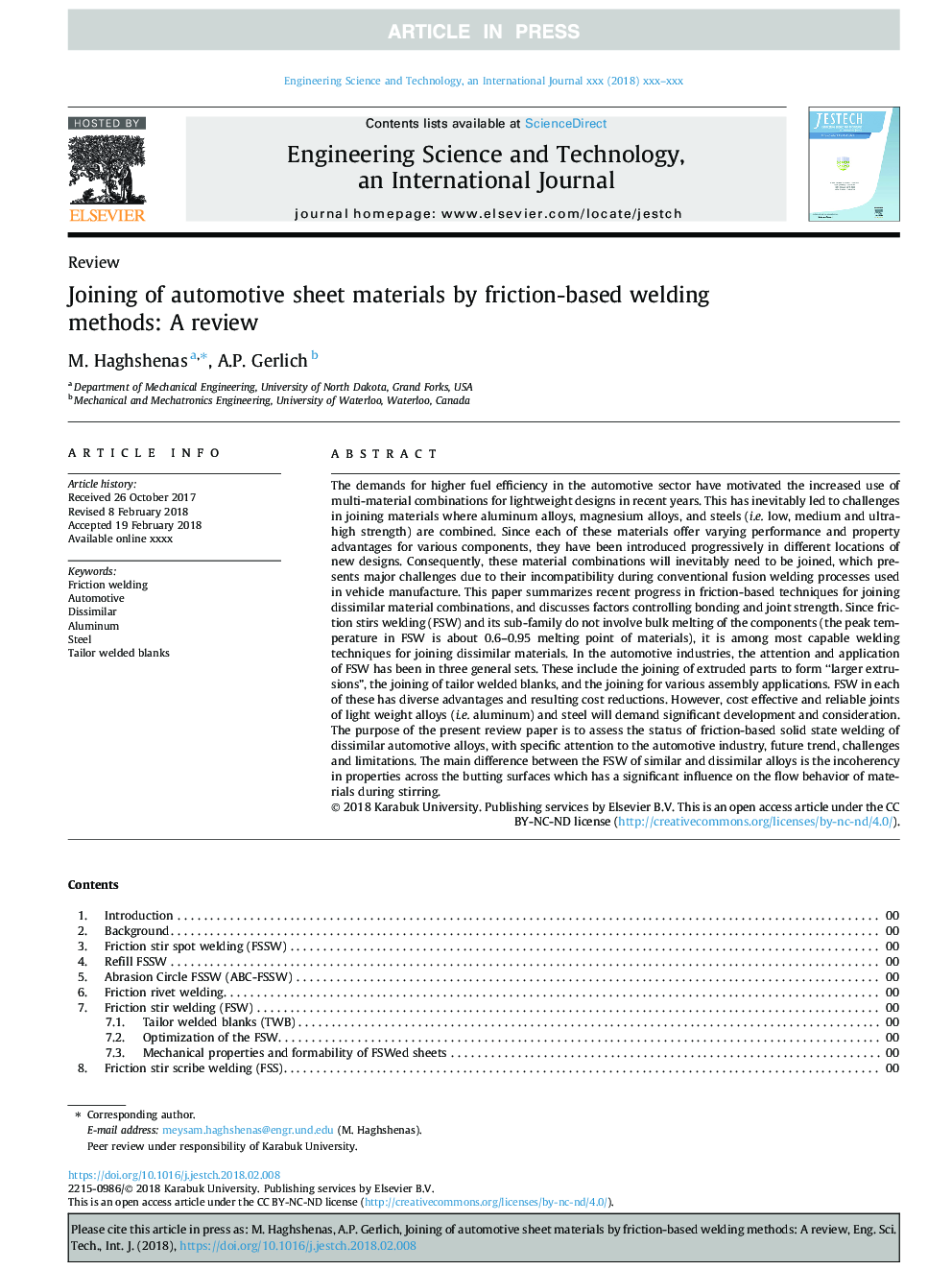| کد مقاله | کد نشریه | سال انتشار | مقاله انگلیسی | نسخه تمام متن |
|---|---|---|---|---|
| 6893717 | 1445568 | 2018 | 19 صفحه PDF | دانلود رایگان |
عنوان انگلیسی مقاله ISI
Joining of automotive sheet materials by friction-based welding methods: A review
ترجمه فارسی عنوان
ترکیب مواد ورق های خودرو با روش های جوشکاری مبتنی بر اصطکاک: بررسی
دانلود مقاله + سفارش ترجمه
دانلود مقاله ISI انگلیسی
رایگان برای ایرانیان
کلمات کلیدی
جوشکاری اصطکاک خودرو، متفاوت است آلومینیوم، فولاد، سفال جوش داده شده،
موضوعات مرتبط
مهندسی و علوم پایه
مهندسی کامپیوتر
علوم کامپیوتر (عمومی)
چکیده انگلیسی
The demands for higher fuel efficiency in the automotive sector have motivated the increased use of multi-material combinations for lightweight designs in recent years. This has inevitably led to challenges in joining materials where aluminum alloys, magnesium alloys, and steels (i.e. low, medium and ultra-high strength) are combined. Since each of these materials offer varying performance and property advantages for various components, they have been introduced progressively in different locations of new designs. Consequently, these material combinations will inevitably need to be joined, which presents major challenges due to their incompatibility during conventional fusion welding processes used in vehicle manufacture. This paper summarizes recent progress in friction-based techniques for joining dissimilar material combinations, and discusses factors controlling bonding and joint strength. Since friction stirs welding (FSW) and its sub-family do not involve bulk melting of the components (the peak temperature in FSW is about 0.6-0.95 melting point of materials), it is among most capable welding techniques for joining dissimilar materials. In the automotive industries, the attention and application of FSW has been in three general sets. These include the joining of extruded parts to form “larger extrusions”, the joining of tailor welded blanks, and the joining for various assembly applications. FSW in each of these has diverse advantages and resulting cost reductions. However, cost effective and reliable joints of light weight alloys (i.e. aluminum) and steel will demand significant development and consideration. The purpose of the present review paper is to assess the status of friction-based solid state welding of dissimilar automotive alloys, with specific attention to the automotive industry, future trend, challenges and limitations. The main difference between the FSW of similar and dissimilar alloys is the incoherency in properties across the butting surfaces which has a significant influence on the flow behavior of materials during stirring.
ناشر
Database: Elsevier - ScienceDirect (ساینس دایرکت)
Journal: Engineering Science and Technology, an International Journal - Volume 21, Issue 1, February 2018, Pages 130-148
Journal: Engineering Science and Technology, an International Journal - Volume 21, Issue 1, February 2018, Pages 130-148
نویسندگان
M. Haghshenas, A.P. Gerlich,
